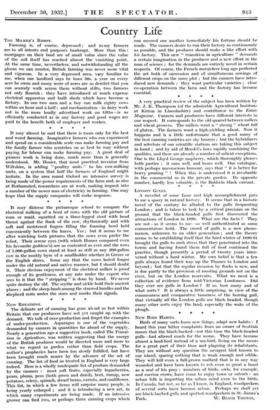Loxnos Gur-Ls.
A novelist of some fame and high accomplishment puts to me a query in natural history. It seems that in a historic novel of the century he alluded to the gulls frequenting London ; and is taken to task by a critical precisian on the ground that the black-headed gulls first discovered the attractions of London in 1890. What are the facts ? They are not—as it seems to me—so well authenticated as some commentators hold. The crowd of gulls is a new pheno- menon, unknown to an older generation ; and the theory seems to be establishing itself that the hard winter of 1890-91 brought the gulls to such stress that they penetrated into the towns and having found them full of food continued the practice, though presently a period of twenty years inter- vened without a hard winter. My own belief is that a few gulls always found their way up the Thames to London and beyond ; but that the regular invasion by flocks is new, and is due partly to the provision of roosting grounds not on the river, but on the London reservoirs. What we need is a collection of evidence from mid-Victorian Londoners. Did they ever see gulls in London ? If so, how many and of what sorts ? It is always a little surprising, in view of the commonness and comparative tameness of the herring gull, that virtually all the London gulls are black headed, though many other sorts enjoy the land, especially the wake of the plough.






























 Previous page
Previous page